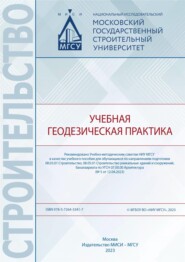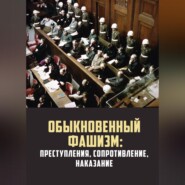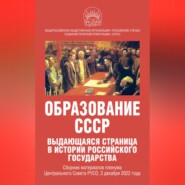По всем вопросам обращайтесь на: info@litportal.ru
(©) 2003-2024.
✖
Library of the World's Best Mystery and Detective Stories
Настройки чтения
Размер шрифта
Высота строк
Поля
The doctor, turning to me, who no longer felt the shock, asked:
"Is it true, Frantz, that the commodore went in bathing?"
"Yes, Cousin Christian."
"At what time?"
"At four o'clock."
"At four o'clock – it was very warm, wasn't it?"
"Oh, yes!"
"It's certainly so," said he, striking his forehead. "The monster could come out without fear – "
He pronounced a few unintelligible words, and then, looking toward the mountaineers:
"My friends," he cried, "that is where this mass of débris came from – of skeletons – which spread terror among the bathers. That is what has ruined you all – it is the spider crab! It is there – hidden in its web – awaiting its prey in the back of the cavern! Who can tell the number of its victims?"
And full of fury, he led the way, shouting:
"Fagots! Fagots!"
The woodcutters followed him, vociferating.
Ten minutes later two large wagons laden with fagots were slowly mounting the slope. A long file of woodcutters, their backs bent double, followed, enveloped in the somber night. My tutor and I walked ahead, leading the horses by their bridles, and the melancholy moon vaguely lighted this funereal march. From time to time the wheels grated. Then the carts, raised by the irregularities of the rocky road, fell again in the track with a heavy jolt.
As we drew near the cavern, on the playground of the roebucks, our cortége halted. The torches were lit, and the crowd advanced toward the gulf. The limpid water, running over the sand, reflected the bluish flame of the resinous torches, the rays of which revealed the tops of the black firs leaning over the rock.
"This is the place to unload," the doctor then said. "It's necessary to block up the mouth of the cavern."
And it was not without a feeling of terror that each undertook the duty of executing his orders. The fagots fell from the top of the loads. A few stakes driven down before the opening of the spring prevented the water from carrying them away.
Toward midnight the mouth of the cavern was completely closed. The water running over spread to both sides on the moss. The top fagots were perfectly dry; then Dr. Weber, supplying himself with a torch, himself lit the fire. The flames ran from twig to twig with an angry crackling, and soon leaped toward the sky, chasing clouds of smoke before them.
It was a strange and savage spectacle, the great pile with trembling shadows lit up in this way.
This cavern poured forth black smoke, unceasingly renewed and disgorged. All around stood the woodcutters, somber, motionless, expectant, their eyes fixed on the opening; and I, although trembling from head to foot in fear, could not tear away my gaze.
It was a good quarter of an hour that we waited, and Dr. Weber was beginning to grow impatient, when a black object, with long hooked claws, appeared suddenly in the shadow and precipitated itself toward the opening.
A cry resounded about the pyre.
The spider, driven back by the live coals, reëntered its cave. Then, smothered doubtless by the smoke, it returned to the charge and leaped out into the midst of the flames. Its long legs curled up. It was as large as my head, and of a violet red.
One of the woodcutters, fearing lest it leap clear of the fire, threw his hatchet at it, and with such good aim that on the instant the fire around it was covered with blood. But soon the flames burst out more vigorously over it and consumed the horrible destroyer.
Such, Master Frantz, was the strange event which destroyed the fine reputation which the waters of Spinbronn formerly enjoyed. I can certify the scrupulous precision of my account. But as for giving you an explanation, that would be impossible for me to do. At the same time, allow me to tell you that it does not seem to me absurd to admit that a spider, under the influence of a temperature raised by thermal waters, which affords the same conditions of life and development as the scorching climates of Africa and South America, should attain a fabulous size. It was this same extreme heat which explains the prodigious exuberance of the antediluvian creation!
However that may be, my tutor, judging that it would be impossible after this event to reestablish the waters of Spinbronn, sold the house back to Hâselnoss, in order to return to America with his negress and collections. I was sent to board in Strasbourg, where I remained until 1809.
The great political events of the epoch then absorbing the attention of Germany and France explain why the affair I have just told you about passed completely unobserved.
HONORÉ DE BALZAC
Melmoth Reconciled[4 - For the narrative "Melmoth the Wanderer," and a description of Balzac's debt to its author, see Volume III, page 161. – EDITOR.]
To Monsieur le Général Baron de Pommereul, a token of the friendship between our fathers, which survives in their sons.
DE BALZAC.
There is a special variety of human nature obtained in the Social Kingdom by a process analogous to that of the gardener's craft in the Vegetable Kingdom, to wit, by the forcing-house – a species of hybrid which can be raised neither from seed nor from slips. This product is known as the Cashier, an anthropomorphous growth, watered by religious doctrine, trained up in fear of the guillotine, pruned by vice, to flourish on a third floor with an estimable wife by his side and an uninteresting family. The number of cashiers in Paris must always be a problem for the physiologist. Has anyone as yet been able to state correctly the terms of the proportion sum wherein the cashier figures as the unknown x? Where will you find the man who shall live with wealth, like a cat with a caged mouse? This man, for further qualification, shall be capable of sitting boxed in behind an iron grating for seven or eight hours a day during seven-eighths of the year, perched upon a cane-seated chair in a space as narrow as a lieutenant's cabin on board a man-of-war. Such a man must be able to defy anchylosis of the knee and thigh joints; he must have a soul above meanness, in order to live meanly; must lose all relish for money by dint of handling it. Demand this peculiar specimen of any creed, educational system, school, or institution you please, and select Paris, that city of fiery ordeals and branch establishment of hell, as the soil in which to plant the said cashier. So be it. Creeds, schools, institutions, and moral systems, all human rules and regulations, great and small, will, one after another, present much the same face that an intimate friend turns upon you when you ask him to lend you a thousand francs. With a dolorous dropping of the jaw, they indicate the guillotine, much as your friend aforesaid will furnish you with the address of the money lender, pointing you to one of the hundred gates by which a man comes to the last refuge of the destitute.
Yet Nature has her freaks in the making of a man's mind; she indulges herself and makes a few honest folk now and again, and now and then a cashier.
Wherefore, that race of corsairs whom we dignify with the title of bankers, the gentry who take out a license for which they pay a thousand crowns, as the privateer takes out his letters of marque, hold these rare products of the incubations of virtue in such esteem that they confine them in cages in their counting-houses, much as governments procure and maintain specimens of strange beasts at their own charges.
If the cashier is possessed of an imagination or of a fervid temperament; if, as will sometimes happen to the most complete cashier, he loves his wife, and that wife grows tired of her lot, has ambitions, or merely some vanity in her composition, the cashier is undone. Search the chronicles of the counting-house. You will not find a single instance of a cashier attaining a position, as it is called. They are sent to the hulks; they go to foreign parts; they vegetate on a second floor in the Rue Saint-Louis among the market gardens of the Marais. Some day, when the cashiers of Paris come to a sense of their real value, a cashier will be hardly obtainable for money. Still, certain it is that there are people who are fit for nothing but to be cashiers, just as the bent of a certain order of mind inevitably makes for rascality. But, oh marvel of our civilization! Society rewards virtue with an income of a hundred louis in old age, a dwelling on a second floor, bread sufficient, occasional new bandana handkerchiefs, an elderly wife and her offspring.
So much for virtue. But for the opposite course, a little boldness, a faculty for keeping on the windward side of the law, as Turenne outflanked Montecuculli, and Society will sanction the theft of millions, shower ribbons upon the thief, cram him with honors, and smother him with consideration.
Government, moreover, works harmoniously with this profoundly illogical reasoner – Society. Government levies a conscription on the young intelligence of the kingdom at the age of seventeen or eighteen, a conscription of precocious power. Great ability is prematurely exhausted by excessive brain work before it is sent up to be submitted to a process of selection. Nurserymen sort and select seeds in much the same way. To this process the Government brings professional appraisers of talent, men who can assay brains as experts assay gold at the Mint. Five hundred such heads, set afire with hope, are sent up annually by the most progressive portion of the population; and of these the Government takes one third, puts them in sacks called the Écoles, and shakes them up together for three years. Though every one of these young plants represents vast productive power, they are made, as one may say, into cashiers. They receive appointments; the rank and file of engineers is made up of them; they are employed as captains of artillery; there is no (subaltern) grade to which they may not aspire. Finally, when these men, the pick of the youth of the nation, fattened on mathematics and stuffed with knowledge, have attained the age of fifty years, they have their reward, and receive as the price of their services the third-floor lodging, the wife and family, and all the comforts that sweeten life for mediocrity. If from among this race of dupes there should escape some five or six men of genius who climb the highest heights, is it not miraculous?
This is an exact statement of the relations between Talent and Probity on the one hand, and Government and Society on the other, in an age that considers itself to be progressive. Without this prefatory explanation a recent occurrence in Paris would seem improbable; but preceded by this summing up of the situation, it will perhaps receive some thoughtful attention from minds capable o£ recognizing the real plague spots of our civilization, a civilization which since 1815 has been moved by the spirit of gain rather than by principles of honor.
About five o'clock, on a dull autumn afternoon, the cashier of one of the largest banks in Paris was still at his desk, working by the light of a lamp that had been lit for some time. In accordance with the use and wont of commerce, the counting-house was in the darkest corner of the low-ceiled and far from spacious mezzanine floor, and at the very end of a passage lighted only by borrowed lights. The office doors along this corridor, each with its label, gave the place the look of a bath-house. At four o'clock the stolid porter had proclaimed, according to his orders, "The bank is closed." And by this time the departments were deserted, the letters dispatched, the clerks had taken their leave. The wives of the partners in the firm were expecting their lovers; the two bankers dining with their mistresses. Everything was in order.
The place where the strong boxes had been bedded in sheet iron was just behind the little sanctum, where the cashier was busy. Doubtless he was balancing his books. The open front gave a glimpse of a safe of hammered iron, so enormously heavy (thanks to the science of the modern inventor) that burglars could not carry it away. The door only opened at the pleasure of those who knew its password. The letter-lock was a warden who kept its own secret and could not be bribed; the mysterious word was an ingenious realization of the "Open sesame!" in the Arabian Nights. But even this was as nothing. A man might discover the password; but unless he knew the lock's final secret, the ultima ratio of this gold-guarding dragon of mechanical science, it discharged a blunderbuss at his head.
The door of the room, the walls of the room, the shutters of the windows in the room, the whole place, in fact, was lined with sheet iron a third of an inch in thickness, concealed behind the thin wooden paneling. The shutters had been closed, the door had been shut. If ever man could feel confident that he was absolutely alone, and that there was no remote possibility of being watched by prying eyes, that man was the cashier of the house of Nucingen and Company in the Rue Saint-Lazare.
Accordingly the deepest silence prevailed in that iron cave. The fire had died out in the stove, but the room was full of that tepid warmth which produces the dull heavy-headedness and nauseous queasiness of a morning after an orgy. The stove is a mesmerist that plays no small part in the reduction of bank clerks and porters to a state of idiocy.
A room with a stove in it is a retort in which the power of strong men is evaporated, where their vitality is exhausted, and their wills enfeebled. Government offices are part of a great scheme for the manufacture of the mediocrity necessary for the maintenance of a Feudal System on a pecuniary basis – and money is the foundation of the Social Contract. (See Les Employés.) The mephitic vapors in the atmosphere of a crowded room contribute in no small degree to bring about a gradual deterioration of intelligences, the brain that gives off the largest quantity of nitrogen asphyxiates the others, in the long run.
The cashier was a man of five and forty or thereabouts. As he sat at the table, the light from a moderator lamp shining full on his bald head and glistening fringe of iron-gray hair that surrounded it – this baldness and the round outlines of his face made his head look very like a ball. His complexion was brick-red, a few wrinkles had gathered about his eyes, but he had the smooth, plump hands of a stout man. His blue cloth coat, a little rubbed and worn, and the creases and shininess of his trousers, traces of hard wear that the clothes-brush fails to remove, would impress a superficial observer with the idea that here was a thrifty and upright human being, sufficient of the philosopher or of the aristocrat to wear shabby clothes. But, unluckily, it is easy to find penny-wise people who will prove weak, wasteful, or incompetent in the capital things of life.
The cashier wore the ribbon of the Legion of Honor at his buttonhole, for he had been a major of dragoons in the time of the Emperor. M. de Nucingen, who had been a contractor before he became a banker, had had reason in those days to know the honorable disposition of his cashier, who then occupied a high position. Reverses of fortune had befallen the major, and the banker out of regard for him paid him five hundred francs a month. The soldier had become a cashier in the year 1813, after his recovery from a wound received at Studzianka during the Retreat from Moscow, followed by six months of enforced idleness at Strasbourg, whither several officers had been transported by order of the Emperor, that they might receive skilled attention. This particular officer, Castanier by name, retired with the honorary grade of colonel, and a pension of two thousand four hundred francs.
In ten years' time the cashier had completely effaced the soldier, and Castanier inspired the banker with such trust in him, that he was associated in the transactions that went on in the private office behind his little counting-house. The baron himself had access to it by means of a secret staircase. There, matters of business were decided. It was the bolting room where proposals were sifted; the privy council chamber where the reports of the money market were analyzed; circular notes issued thence; and finally, the private ledger and the journal which summarized the work of all the departments were kept there.
Castanier had gone himself to shut the door which opened on to a staircase that led to the parlor occupied by the two bankers on the first floor of their hotel. This done, he had sat down at his desk again, and for a moment he gazed at a little collection of letters of credit drawn on the firm of Watschildine of London. Then he had taken up the pen and imitated the banker's signature upon each. Nucingen he wrote, and eyed the forged signatures critically to see which seemed the most perfect copy.
Suddenly he looked up as if a needle had pricked him. "You are not alone!" a boding voice seemed to cry in his heart; and indeed the forger saw a man standing at the little grated window of the counting-house, a man whose breathing was so noiseless that he did not seem to breathe at all. Castanier looked, and saw that the door at the end of the passage was wide open; the stranger must have entered by that way.
For the first time in his life the old soldier felt a sensation of dread that made him stare open-mouthed and wide-eyed at the man before him; and for that matter, the appearance of the apparition was sufficiently alarming even if unaccompanied by the mysterious circumstances of so sudden an entry. The rounded forehead, the harsh coloring of the long oval face, indicated quite as plainly as the cut of his clothes that the man was an Englishman, reeking of his native isles. You had only to look at the collar of his overcoat, at the voluminous cravat which smothered the crushed frills of a shirt front so white that it brought out the changeless leaden hue of an impassive face, and the thin red line of the lips that seemed made to suck the blood of corpses; and you could guess at once at the black gaiters buttoned up to the knee, and the half-puritanical costume of a wealthy Englishman dressed for a walking excursion. The intolerable glitter of the stranger's eyes produced a vivid and unpleasant impression, which was only deepened by the rigid outlines of his features. The dried-up, emaciated creature seemed to carry within him some gnawing thought that consumed him and could not be appeased.
He must have digested his food so rapidly that he could doubtless eat continually without bringing any trace of color into his face or features. A tun of Tokay vin de succession would not have caused any faltering in that piercing glance that read men's inmost thoughts, nor dethroned the merciless reasoning faculty that always seemed to go to the bottom of things. There was something of the fell and tranquil majesty of a tiger about him.

















